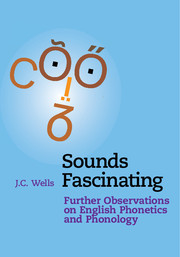17 - Connected Speech
from PART III - APPLYING PHONETICS
Published online by Cambridge University Press: 05 September 2016
Summary
Accenting the Unaccentable
A correspondent, a learner of EFL, asked me how I would pronounce the last word in each of the following sentences.
I wouldn't say he was careful – in fact, I would say he was careless.
I didn't say she was interesting, I said she was interested.
In deciding how to say these words, we are faced with conflicting rules. On the one hand, when contrasting two words or phrases like this we normally use a contrastive accent, placing it on the item under focus.
I ‘wouldn't say he was \/careful, | in ‘fact I'd say he was \negligent.
I ‘didn't say she was \/interesting, | I said she was \boring.
There we've avoided my correspondent's problem by changing the wording so that it is words, rather than just morphemes, that are under contrastive focus.
But if we retain the wording he asks about, we come up against the second principle, namely that we normally place accents only on syllables that are lexically stressed. So perhaps we would have to say:
I ‘wouldn't say he was \/careful, | in ‘fact I'd say he was \careless.
I ‘didn't say she was \/interesting, | I said she was \interested.
Can we override the second principle in the interests of the first? Speakers certainly sometimes do.
I ‘wouldn't say he was \/careful, | in ‘fact I'd say he was ‘care\less.
I ‘didn't say she was \/interesting, | I said she was ‘interest\ed.
You can even accent the first half of each contrast as well as the second.
I ‘wouldn't say he was ‘care\/ful, | in ‘fact I'd say he was ‘care\less.
I didn't say she was ‘interest\/ing, | I said she was ‘interest\ed.
As for which of these options is the commonest, I have no data. If I were planning ahead as I spoke, I think I'd go for the last one I mention. And I'd pronounce the accented suffixes fʊl, les, ɪŋ, ɪd.
- Type
- Chapter
- Information
- Sounds FascinatingFurther Observations on English Phonetics and Phonology, pp. 177 - 183Publisher: Cambridge University PressPrint publication year: 2016

